- Essay Guides
- Main Academic Essays

How to Start a Persuasive Essay: Best Tips and Tricks
- Speech Topics
- Basics of Essay Writing
- Essay Topics
- Other Essays
- Research Paper Topics
- Basics of Research Paper Writing
- Miscellaneous
- Chicago/ Turabian
- Data & Statistics
- Methodology
- Admission Writing Tips
- Admission Advice
- Other Guides
- Student Life
- Studying Tips
- Understanding Plagiarism
- Academic Writing Tips
- Basics of Dissertation & Thesis Writing
- Research Paper Guides
- Formatting Guides
- Basics of Research Process
- Admission Guides
- Dissertation & Thesis Guides

Table of contents
Use our free Readability checker
Here’s a dilemma: you work so hard on your persuasive essay, do in-depth research, develop strong arguments, but in the end, you get a low grade. And all this happens because your introduction isn’t convincing enough. As you can see, understanding how to start a persuasive essay in an effective manner is crucial. Fortunately, you are in the right place. Keep reading our guide to find useful tips on beginning a persuasive essay. From crafting an irresistible hook to formulating your main statement, you will find plenty of helpful suggestions. By the way, we’ve got some good examples to share. So let’s get started.
Importance of Knowing How to Start a Persuasive Essay
Before discussing how to start off a persuasive essay, you should keep in mind that you must hook your audience from the very beginning. Your reader should understand what you are going to say and why it is important. Still, you shouldn’t lay all your cards on the table and reveal your arguments. Your main thesis statement should be presented after some context. An introduction is used to convince the reader not just of your opinion, but of the entire paper being worth reading. Therefore, one should take an especially reasonable approach. Further, we will share some helpful tips on drawing up a good introduction and give real examples. But first, be sure to prepare a persuasive essay outline template .
How to Start a Good Persuasive Essay: Main Elements
Before starting a persuasive essay, you should think about its structure in detail. An introduction will be effective if you compile it based on our scheme. When drawing up an introductory part, you should include such elements:
- Background information (context)
- Main definitions (if there are any)
- Topic-related thesis.
This structure makes it possible to convey any idea in a concise way. Remember: An opening paragraph should be short while writing a persuasive essay . All you need is to present a clear idea which will potentially hook the reader. Giving some hint on the gist of writing will be enough.
Starting a Persuasive Essay with a Hook
One idea that always works is starting a persuasive essay with a hook. You should make it clear about your topic in advance. Thus, you will attract reader’s attention. You should choose a strong sentence that will hook your addressee and may give them a particular idea. You can start persuasive essays with any question related to your topic or with an interesting fact. Quite often students use statistical data or quotes of some experts in their field of knowledge. This is the first step towards persuasion. It demonstrates that the subsequent text won’t be inferior. But just having an effective hook won’t be sufficient, so you should gradually prepare your reader. And we will learn more about this in the next section. In the meantime, have you already considered hiring a persuasive essay writer ? Our writers are academic-savvy and can create a great persuasive essay quickly and efficiently.
Background Information in Persuasive Essay
In an introductory paragraph of a persuasive essay after the hook, we recommend outlining some topic’s context. Focus reader’s attention on background information. Here’s what you can include to develop your topic further:
- Historical or geographical facts
- Key characteristics.
This section should not only familiarize your readers with some background facts that you have researched. You also should smoothly lead to a thesis statement.
How to Write a Persuasive Essay Thesis
Your writing should begin with a strong persuasive essay thesis statement. Your thesis should introduce the topic and offer your viewpoint on some matter. Besides, it should list several arguments you are going to discuss in the main body. This statement will complete an introduction. Then, you will proceed to presenting the gist of an essay. Keep in mind several things that make a persuasive essay thesis stronger. First of all, a claim that you make should be debatable. This means that other people may have an opposing viewpoint. Secondly, your thesis statement should have a reasonable scope. Don’t make it too narrow, and, yet, this statement should be focused. Now that you know what elements should be included in your persuasive essay introduction, let’s discuss some writing tips.
How to Start a Strong Persuasive Essay: Main Tips
While working on your text, you will surely need tips on how to start a persuasive essay. By following our hacks, you will be able to convey important information to readers. Based on our experience in preparing academic texts, we have developed some recommendations. Our writing tips will make your persuasive essay introduction as informative and attractive as possible. Meanwhile, some of these suggestions may be applied to other types of academic writing.
Tip 1: Brainstorm Your Topic Before Starting a Persuasive Essay
Don’t rush to start writing right away – you should think about some good persuasive essay topics to begin your essay. The most effective way is to work on any topic in line with the purpose that you have set for yourself. Focus on any subject that you are genuinely interested in and do preliminary research. Make sure you have enough supporting facts that prove your opinion. Follow these steps to make your persuasive essay topic irresistible:
- Summarize well-known facts on your topic.
- Highlight controversial points.
- Prepare points for further argumentation.
This way, you will know whether you should conduct any additional research. Besides, you will know if there is enough information that can convince readers of your point of view.
Tip 2: Provide a Hook for Your Persuasive Essay Introduction
An introduction of persuasive essay won’t be complete without a hook. If you fail to include it, such paper will unlikely captivate reader’s attention. A catchy hook helps to break the ice between your writing and readers. In turn, an increased attention ensures that your audience understands your topic well. Here are several things you may include in your hook to make it more effective:
- Quotes It’s a good idea if they relate to the topic and bring readers to the main subject.
- Joke It is a great opportunity to dilute this formal environment and create some positive vibe.
- Question It is good when it’s rhetorical and makes readers think. In fact, this will help you involve readers in an action or some kind of dialogue.
- Statistics It works, if numbers are related to your research. Choose the most relevant data.
- Counterargument Starting with an opposite opinion is a great way to refute this counterargument from the very beginning. This technique helps you intrigue readers at an early stage.
These recommendations may help you create a good hook that will attract readers, so use them wisely.
Tip 3: Create a Context for Your Persuasive Essay
When working on your persuasive essay introduction, be sure that you provide some background on the topic. Put readers in some context. You are more than welcome to use any statistical facts, numbers or in-depth definition. Historical or biographical details will work as well. Your task is to set an exact direction of thoughts. But don’t reveal any arguments and proofs in this section – you will do that later. Mention why this problem should be investigated, with more precise explanations being provided in body paragraphs. With the clear context, it will be much easier to perceive any idea. On top of that, given the proper background, there should be no doubts about your argument. Consider our best college essay writing services to speed the process up.
Tip 4: Write a Thesis Statement for Your Persuasive Essay Intro
How to start a persuasive essay thesis? It is easy: just write 1-2 sentences that clearly describe your main claim. Remember that your whole essay will be based on this statement. So, when crafting the thesis statement, make sure that you will be able to prove it. Make it sound logical – your statement shouldn’t be based on some blind guesses. Readers should understand your point and what they will find in the following paragraphs. Feel free to list your arguments, but don’t overdo it with extra details. Save more room for in-depth thoughts that will be covered in body paragraphs.
Tip 5: Start Persuasive Essay Briefly
Start a persuasive essay with some brief information on what one will learn from the text. Choose the main theses, provide them in a concise way, so as not to overload the reader’s mind. Mention the importance of your topic – your reader should be convinced that this essay is worth reading. Although your opinion should be arguable, this doesn’t mean that you can write vague sentences. Refer to those facts that resonate with your central statement. Long story short, be concise and stay on point. Buy essay online that may be of help to you if anything seems too vague right now.
Tip 6: Be Convincing in Your Persuasive Essay Introduction
When you try to start a persuasive essay, chances are that you will come across advice to use credible references. While this is all good and well, we suggest focusing more on the convincing arguments – your personal opinion. Indicate that your paper has been written based on personal experience and resulted from your own research. With this approach, the fact that it includes your thoughts won’t surprise anyone. You shouldn’t write about the truths known to everyone interested in this topic. You should better provide your ideas on why your thesis is correct. Explain why you have decided on this position. This is a polemical style that will trigger a number of debates.
Persuasive Essay Introduction Examples
If you don’t know how to start a persuasive essay, examples will surely be useful for you. After all, this is a good opportunity to get acquainted with successful patterns and include the best of them in your text. For instance, you can see ways of structuring arguments in an actual example and use it as the basis for your own essay. Still, you should choose your own arguments related to the topic. It all may sound complicated. For this reason, we will introduce an example of what a convincing introduction structure may be like.
How to Start a Persuasive Essay About a Book: Example
Before finding out how to start a persuasive essay about a book, decide on the literature. However, regardless of any genre and author, your topic will be dedicated to providing your opinion. Focus on your position and provide 3 arguments that you will discuss further. Our example will help you make it clear.

Persuasive Essay Introduction on Gun Control: Example
Your opinion on such an important topic as gun control should sound convincing. Before deciding on how to start a persuasive essay on gun control, make readers believe you have chosen some weighty thesis to develop further. Let’s look at an example.

How to Start Off a Persuasive Essay About Debates: Example
It is not difficult to work out the topic of debates. But before you find out how to start off a persuasive essay about debates, highlight the thesis that you support. You should specify the purpose of an essay in an introduction and avoid unsupported value judgments.

Starting a Persuasive Essay on Too Much Homework: Example
Before deciding on how to write a persuasive essay on too much homework, you should keep in mind that this topic is quite unusual. To define your position, you should prepare strong arguments; statistics will make an especially good hook.

Writing a Persuasive Essay on Starting a Colony: Template
To write an introduction of a persuasive essay on starting a colony, you should take on a strong stance on this matter. Be clear and convey the need for this action. Give general arguments, referring to historical practice – this will convince an audience to accept your point.

Final Thoughts
An introduction of a persuasive essay should be effective. After all, it’s the first thing that the readers will see. So, to make a persuasive essay introduction informative and convincing, you should make arguments clear and prepare your arguments. Include such elements in your introduction:
- Hook to attract the readers’ attention
- Personal opinion and proprietary research
- Thesis statement.
By using the above-listed recommendations, you will create a really high-quality introduction for an essay, where you will specify your position and convince readers of the topic's importance. BTW, a free essay maker might help you generate a persuasive essay. Use it to simplify the process.
If you are struggling with your persuasive essay, entrust this task to our academic writers. Share your requirements and our experts will work miracles in a timely manner.
FAQ About Persuasive Essay Introductions
1. what comes first in a persuasive essay.
When writing a persuasive essay introduction, you should indicate the problem you are going to cover. Specify some types and characters that are important to readers. Don’t forget about presenting your personal achievements and opinions. But make sure that you don’t dilute your first paragraph. An introduction should be to the point, just like the rest of writing.

2. How to start a persuasive essay about littering?
Before deciding on how to start a persuasive essay about littering, you should outline the issue. In our case, this is litter that pollutes our planet, with its influence having already been proven by hundreds of studies. Highlight the fact that litter doesn’t only harm our planet in general, but also does affect us directly. Prove it by an argument that it accumulates in the environment. These can be the places we work, live and have fun in, which is harmful to our health.
3. How can I create a hook for an essay about refugees?
Many people ask how to start a persuasive essay with a hook when it comes to writing a paper about refugees. We recommend describing some feelings and loneliness that this category of people experiences. Make an emotional hook to evoke the readers’ moral side. This will work, and you will get readers interested. After all, this is the most important aspect of any type of writing.

Daniel Howard is an Essay Writing guru. He helps students create essays that will strike a chord with the readers.
You may also like

How to Write a Persuasive Essay: Tips and Tricks

By Allison Bressmer
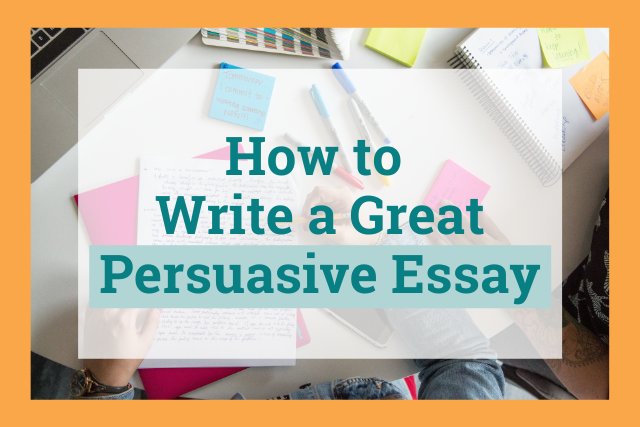
Most composition classes you’ll take will teach the art of persuasive writing. That’s a good thing.
Knowing where you stand on issues and knowing how to argue for or against something is a skill that will serve you well both inside and outside of the classroom.
Persuasion is the art of using logic to prompt audiences to change their mind or take action , and is generally seen as accomplishing that goal by appealing to emotions and feelings.
A persuasive essay is one that attempts to get a reader to agree with your perspective.
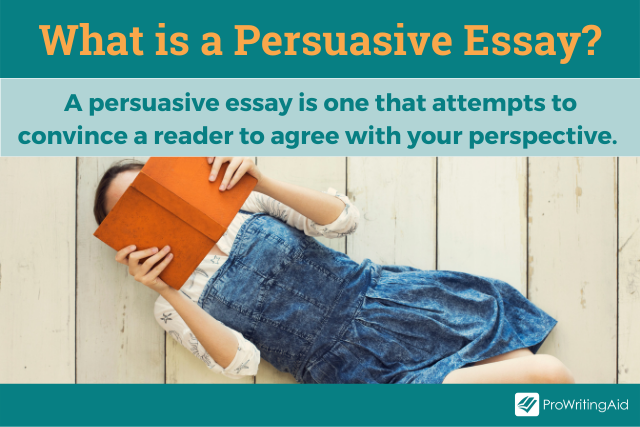
Ready for some tips on how to produce a well-written, well-rounded, well-structured persuasive essay? Just say yes. I don’t want to have to write another essay to convince you!
How Do I Write a Persuasive Essay?
What are some good topics for a persuasive essay, how do i identify an audience for my persuasive essay, how do you create an effective persuasive essay, how should i edit my persuasive essay.
Your persuasive essay needs to have the three components required of any essay: the introduction , body , and conclusion .
That is essay structure. However, there is flexibility in that structure.
There is no rule (unless the assignment has specific rules) for how many paragraphs any of those sections need.
Although the components should be proportional; the body paragraphs will comprise most of your persuasive essay.
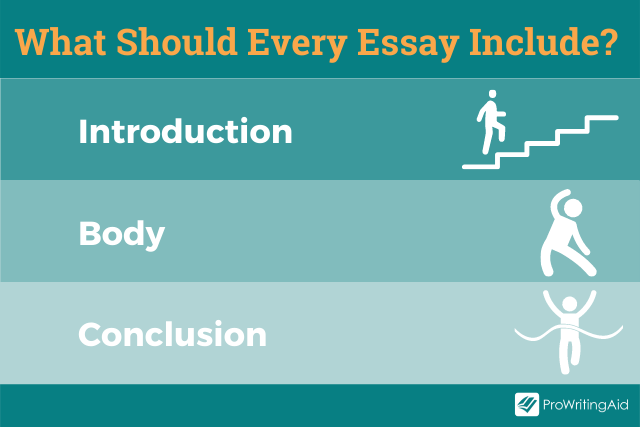
How Do I Start a Persuasive Essay?
As with any essay introduction, this paragraph is where you grab your audience’s attention, provide context for the topic of discussion, and present your thesis statement.
TIP 1: Some writers find it easier to write their introductions last. As long as you have your working thesis, this is a perfectly acceptable approach. From that thesis, you can plan your body paragraphs and then go back and write your introduction.
TIP 2: Avoid “announcing” your thesis. Don’t include statements like this:
- “In my essay I will show why extinct animals should (not) be regenerated.”
- “The purpose of my essay is to argue that extinct animals should (not) be regenerated.”
Announcements take away from the originality, authority, and sophistication of your writing.
Instead, write a convincing thesis statement that answers the question "so what?" Why is the topic important, what do you think about it, and why do you think that? Be specific.
How Many Paragraphs Should a Persuasive Essay Have?
This body of your persuasive essay is the section in which you develop the arguments that support your thesis. Consider these questions as you plan this section of your essay:
- What arguments support your thesis?
- What is the best order for your arguments?
- What evidence do you have?
- Will you address the opposing argument to your own?
- How can you conclude convincingly?
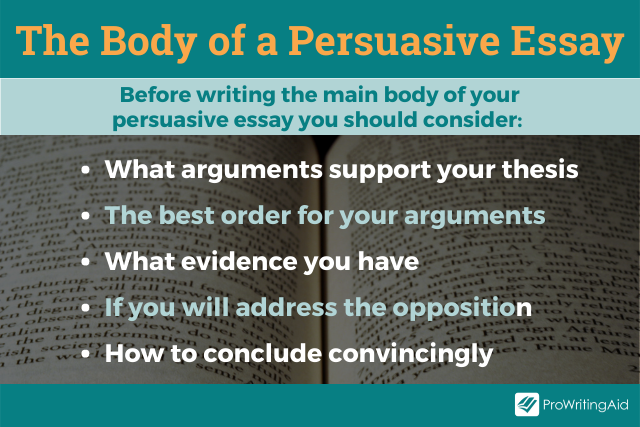
TIP: Brainstorm and do your research before you decide which arguments you’ll focus on in your discussion. Make a list of possibilities and go with the ones that are strongest, that you can discuss with the most confidence, and that help you balance your rhetorical triangle .
What Should I Put in the Conclusion of a Persuasive Essay?
The conclusion is your “mic-drop” moment. Think about how you can leave your audience with a strong final comment.
And while a conclusion often re-emphasizes the main points of a discussion, it shouldn’t simply repeat them.
TIP 1: Be careful not to introduce a new argument in the conclusion—there’s no time to develop it now that you’ve reached the end of your discussion!
TIP 2 : As with your thesis, avoid announcing your conclusion. Don’t start your conclusion with “in conclusion” or “to conclude” or “to end my essay” type statements. Your audience should be able to see that you are bringing the discussion to a close without those overused, less sophisticated signals.
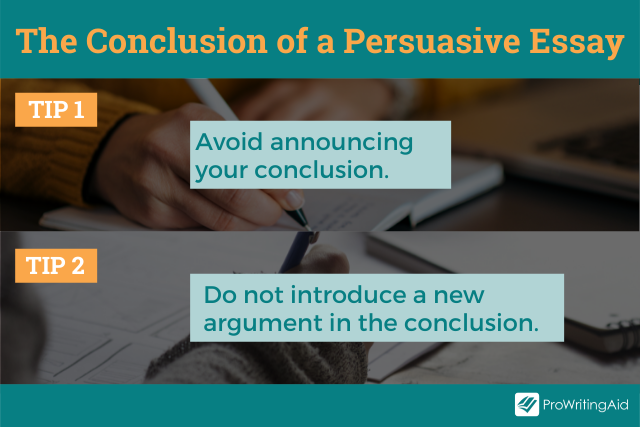
If your instructor has assigned you a topic, then you’ve already got your issue; you’ll just have to determine where you stand on the issue. Where you stand on your topic is your position on that topic.
Your position will ultimately become the thesis of your persuasive essay: the statement the rest of the essay argues for and supports, intending to convince your audience to consider your point of view.
If you have to choose your own topic, use these guidelines to help you make your selection:
- Choose an issue you truly care about
- Choose an issue that is actually debatable
Simple “tastes” (likes and dislikes) can’t really be argued. No matter how many ways someone tries to convince me that milk chocolate rules, I just won’t agree.
It’s dark chocolate or nothing as far as my tastes are concerned.
Similarly, you can’t convince a person to “like” one film more than another in an essay.
You could argue that one movie has superior qualities than another: cinematography, acting, directing, etc. but you can’t convince a person that the film really appeals to them.

Once you’ve selected your issue, determine your position just as you would for an assigned topic. That position will ultimately become your thesis.
Until you’ve finalized your work, consider your thesis a “working thesis.”
This means that your statement represents your position, but you might change its phrasing or structure for that final version.
When you’re writing an essay for a class, it can seem strange to identify an audience—isn’t the audience the instructor?
Your instructor will read and evaluate your essay, and may be part of your greater audience, but you shouldn’t just write for your teacher.
Think about who your intended audience is.
For an argument essay, think of your audience as the people who disagree with you—the people who need convincing.
That population could be quite broad, for example, if you’re arguing a political issue, or narrow, if you’re trying to convince your parents to extend your curfew.
Once you’ve got a sense of your audience, it’s time to consult with Aristotle. Aristotle’s teaching on persuasion has shaped communication since about 330 BC. Apparently, it works.
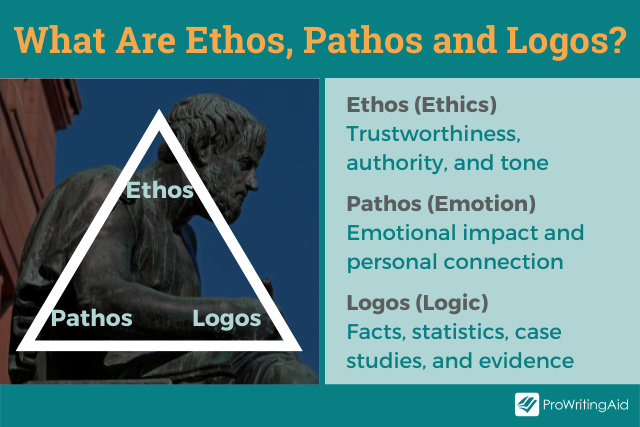
Aristotle taught that in order to convince an audience of something, the communicator needs to balance the three elements of the rhetorical triangle to achieve the best results.
Those three elements are ethos , logos , and pathos .
Ethos relates to credibility and trustworthiness. How can you, as the writer, demonstrate your credibility as a source of information to your audience?
How will you show them you are worthy of their trust?
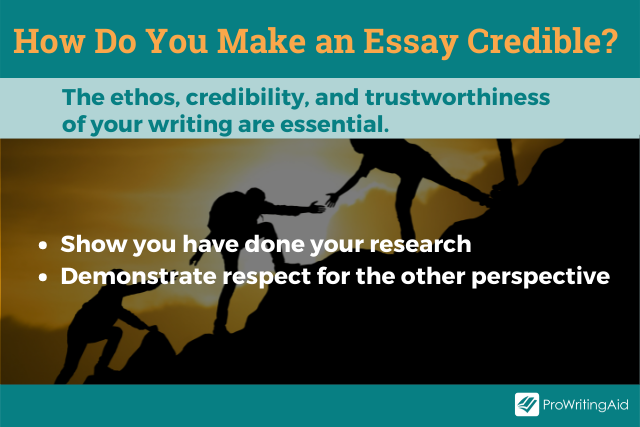
- You show you’ve done your research: you understand the issue, both sides
- You show respect for the opposing side: if you disrespect your audience, they won’t respect you or your ideas
Logos relates to logic. How will you convince your audience that your arguments and ideas are reasonable?
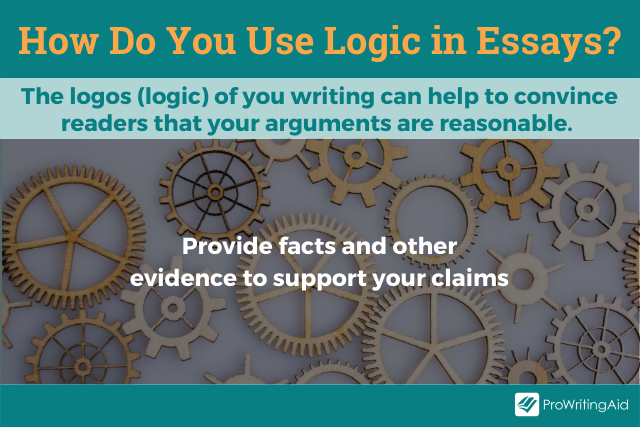
You provide facts or other supporting evidence to support your claims.
That evidence may take the form of studies or expert input or reasonable examples or a combination of all of those things, depending on the specific requirements of your assignment.
Remember: if you use someone else’s ideas or words in your essay, you need to give them credit.
ProWritingAid's Plagiarism Checker checks your work against over a billion web-pages, published works, and academic papers so you can be sure of its originality.
Find out more about ProWritingAid’s Plagiarism checks.
Pathos relates to emotion. Audiences are people and people are emotional beings. We respond to emotional prompts. How will you engage your audience with your arguments on an emotional level?
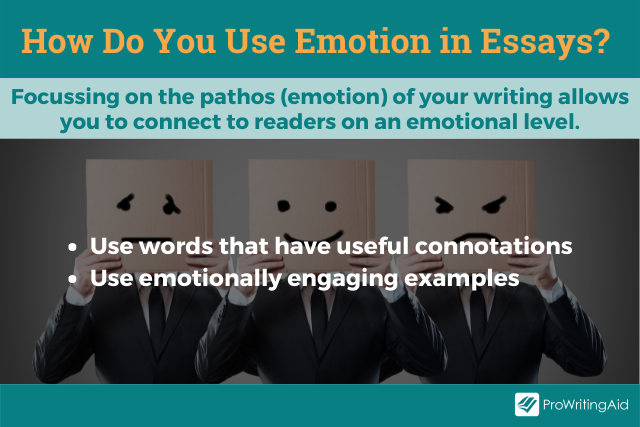
- You make strategic word choices : words have denotations (dictionary meanings) and also connotations, or emotional values. Use words whose connotations will help prompt the feelings you want your audience to experience.
- You use emotionally engaging examples to support your claims or make a point, prompting your audience to be moved by your discussion.
Be mindful as you lean into elements of the triangle. Too much pathos and your audience might end up feeling manipulated, roll their eyes and move on.
An “all logos” approach will leave your essay dry and without a sense of voice; it will probably bore your audience rather than make them care.
Once you’ve got your essay planned, start writing! Don’t worry about perfection, just get your ideas out of your head and off your list and into a rough essay format.
After you’ve written your draft, evaluate your work. What works and what doesn’t? For help with evaluating and revising your work, check out this ProWritingAid post on manuscript revision .
After you’ve evaluated your draft, revise it. Repeat that process as many times as you need to make your work the best it can be.
When you’re satisfied with the content and structure of the essay, take it through the editing process .
Grammatical or sentence-level errors can distract your audience or even detract from the ethos—the authority—of your work.
You don’t have to edit alone! ProWritingAid’s Realtime Report will find errors and make suggestions for improvements.
You can even use it on emails to your professors:
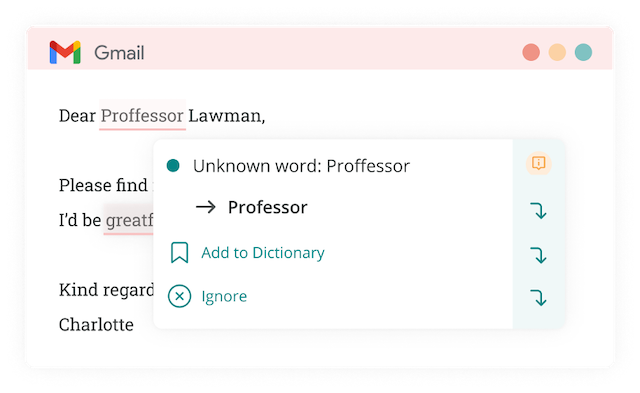
Try ProWritingAid with a free account.
How Can I Improve My Persuasion Skills?
You can develop your powers of persuasion every day just by observing what’s around you.
- How is that advertisement working to convince you to buy a product?
- How is a political candidate arguing for you to vote for them?
- How do you “argue” with friends about what to do over the weekend, or convince your boss to give you a raise?
- How are your parents working to convince you to follow a certain academic or career path?
As you observe these arguments in action, evaluate them. Why are they effective or why do they fail?
How could an argument be strengthened with more (or less) emphasis on ethos, logos, and pathos?
Every argument is an opportunity to learn! Observe them, evaluate them, and use them to perfect your own powers of persuasion.

Be confident about grammar
Check every email, essay, or story for grammar mistakes. Fix them before you press send.
Allison Bressmer
Allison Bressmer is a professor of freshman composition and critical reading at a community college and a freelance writer. If she isn’t writing or teaching, you’ll likely find her reading a book or listening to a podcast while happily sipping a semi-sweet iced tea or happy-houring with friends. She lives in New York with her family. Connect at linkedin.com/in/allisonbressmer.
Get started with ProWritingAid
Drop us a line or let's stay in touch via:

Thesis Statement for Persuasive Essay
Thesis statement generator for persuasive essay.
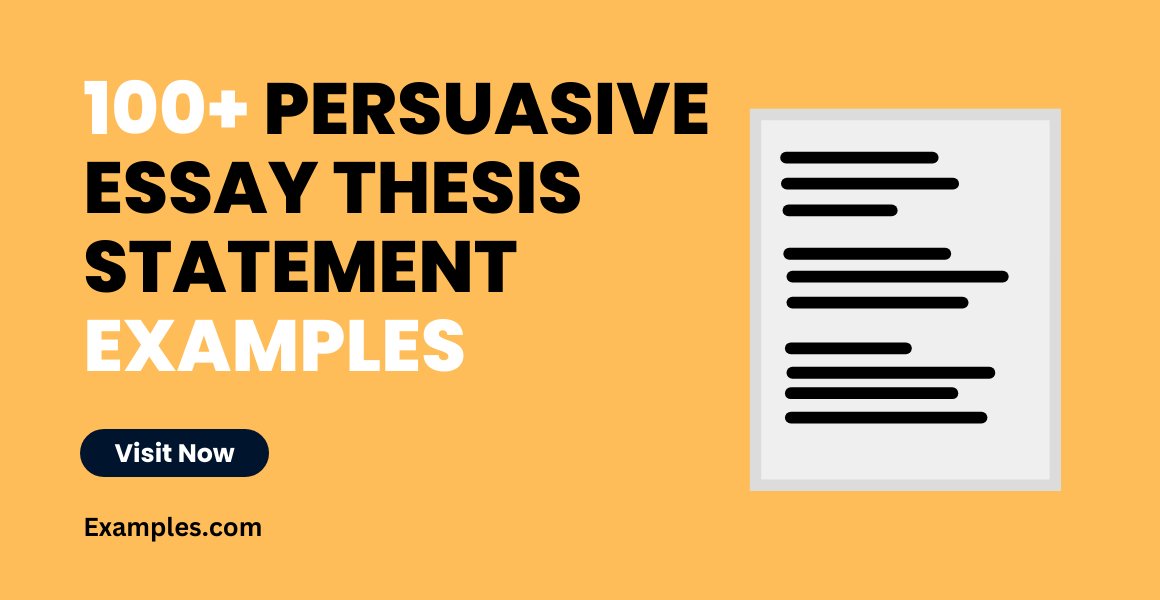
Crafting a compelling thesis for a persuasive essay is fundamental in anchoring your argument and driving your message home. A persuasive thesis not only states your position but also presents the argument you’ll use to sway your reader. This guide unveils the art of formulating influential persuasive essay thesis statements , offering examples and expert tips to ensure your essay resonates with conviction and persuasive power. Dive in to fortify your argumentative prowess.
What is a Persuasive Essay Thesis Statement? – Definition
A persuasive essay thesis statement is a concise summary of the main point or claim of the essay. It serves as a roadmap for readers, indicating the stance the writer is taking on a particular issue or topic and the key arguments they will use to convince readers of their perspective. Essentially, it’s the heart of your argument, capturing the essence of what you’re trying to persuade your audience to believe or do.
What is the Best Thesis Statement Example for Persuasive Essay?
While the “best” thesis statement is subjective and depends on the topic and target audience, a strong example might be:
“Given the environmental, economic, and health benefits, cities should invest more in cycling infrastructure to promote bicycle commuting, reduce traffic congestion, and decrease air pollution.”
This good thesis statement not only clearly states the writer’s perspective but also outlines the main arguments they’ll use to persuade readers.
100 Thesis Statement Examples for Persuasive Essay
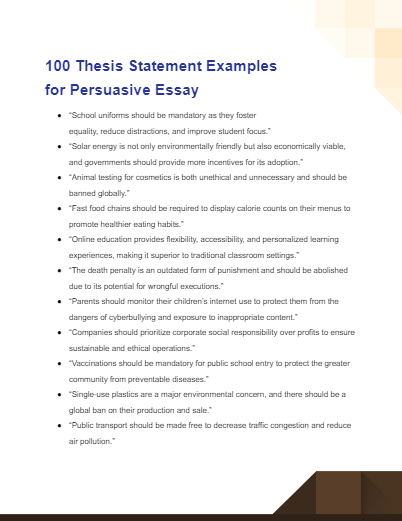
Size: 206 KB
A persuasive essay thesis is a declarative sentence that condenses the central argument you intend to make. It’s more than just a statement of intent: it’s a bold proclamation of your viewpoint on an issue. A compelling thesis can differentiate a strong essay from a weak one. Dive into these examples to understand the diversity and depth a persuasive essay thesis can achieve.
- “School uniforms should be mandatory as they foster equality, reduce distractions, and improve student focus.”
- “Solar energy is not only environmentally friendly but also economically viable, and governments should provide more incentives for its adoption.”
- “Animal testing for cosmetics is both unethical and unnecessary and should be banned globally.”
- “Fast food chains should be required to display calorie counts on their menus to promote healthier eating habits.”
- “Online education provides flexibility, accessibility, and personalized learning experiences, making it superior to traditional classroom settings.”
- “The death penalty is an outdated form of punishment and should be abolished due to its potential for wrongful executions.”
- “Parents should monitor their children’s internet use to protect them from the dangers of cyberbullying and exposure to inappropriate content.”
- “Companies should prioritize corporate social responsibility over profits to ensure sustainable and ethical operations.”
- “Vaccinations should be mandatory for public school entry to protect the greater community from preventable diseases.”
- “Single-use plastics are a major environmental concern, and there should be a global ban on their production and sale.”
- “Public transport should be made free to decrease traffic congestion and reduce air pollution.”
- “Professional athletes should be held to higher standards of behavior due to their influence on younger fans.”
- “Parents should have an active role in their children’s education, including the right to choose schools and curricula.”
- “Governments should regulate and limit the exposure of children to advertising to protect them from consumerist indoctrination.”
- “The age for legal alcohol consumption should be raised to 21 to combat the rise in youth alcohol-related incidents.”
- “The government should fund and promote STEM education to ensure a competitive workforce in the global market.”
- “Smoking in public places should be banned due to its detrimental health effects on non-smokers.”
- “Teens under 18 should not be allowed to access social media platforms to protect their mental health.”
- “The global community should take more aggressive actions to combat climate change and protect future generations.”
- “Freedom of the press is essential for a functioning democracy, and any attempts to limit it are detrimental to society.”
- “The gig economy exploits workers and lacks job security; therefore, stricter regulations should be enforced.”
- “GMO foods, when properly regulated, can solve global hunger issues and should be embraced.”
- “Gender pay gaps exist and are a result of systemic sexism; companies should be mandated to ensure equal pay.”
- “Limiting screen time for children promotes healthier physical and mental development.”
- “Mandatory voting ensures everyone’s voice is heard and should be implemented to strengthen democratic processes.”
- “Public figures should have a limited right to privacy due to their influence and role in society.”
- “Advertisements targeting children should be banned to prevent early consumerism.”
- “Body cameras for law enforcement officers are essential to promote transparency and accountability.”
- “Whistleblowers play a crucial role in democratic societies and should be protected by law from retaliation.”
- “Cultural appropriation in fashion and art belittles original traditions and should be discouraged.”
- “Educational institutions should focus more on practical skills rather than theoretical knowledge to prepare students for real-world challenges.”
- “Restricting the sale of sugary beverages can lead to a significant reduction in obesity rates.”
- “Children’s exposure to violent video games directly correlates with aggressive behavior, and such games should have age restrictions.”
- “The censorship of art is a violation of freedom of expression and stifles the creative spirit.”
- “Mental health education should be a mandatory part of school curricula to address and destigmatize mental health issues.”
- “Homeschooling, when done effectively, can offer a more personalized and efficient education than traditional schools.”
- “Organic farming practices should be promoted and subsidized by governments due to their environmental and health benefits.”
- “The excessive use of antibiotics in agriculture poses long-term health risks, necessitating stricter regulations.”
- “Workplace wellness programs not only benefit employees but also lead to increased productivity and should be adopted by all companies.”
- “Governments should impose heavier taxes on junk food to curb the increasing rates of health issues related to poor diet.”
- “Higher education should be made affordable for all, as it’s a fundamental right and not a luxury.”
- “Celebrities endorsing political candidates can unduly influence the public, and such endorsements should be approached with skepticism.”
- “Urban planning must prioritize green spaces due to their psychological and environmental benefits.”
- “Euthanasia, when done under strict regulations, is an act of mercy and should be legally allowed.”
- “The global community must cooperate to tackle the refugee crisis and ensure safe resettlement and support.”
- “Artificial intelligence, without proper ethical guidelines, poses a threat to job markets and privacy.”
- “Zero-waste lifestyles are crucial for sustainability, and consumer practices should align with this goal.”
- “Fast fashion contributes to environmental degradation, and consumers should support sustainable clothing brands.”
- “Limitations on free speech in the name of national security can lead to authoritarianism and should be scrutinized.”
- “Digital literacy is as fundamental as reading and writing in the 21st century, and schools should integrate it into their curricula.”
- “The increasing privatization of natural resources threatens public access and should be regulated.”
- “Adopting a plant-based diet can dramatically reduce one’s carbon footprint and combat climate change.”
- “In an era of misinformation, critical thinking skills are paramount and should be emphasized in education.”
- “Universal healthcare is a fundamental human right and should not be tied to employment or economic status.”
- “Cybersecurity measures are not just an IT concern but are crucial for national security.”
- “Regulating tech giants is essential to prevent monopolies and protect user data.”
- “Banning beauty contests can help alleviate societal pressures and stereotypes regarding physical appearance.”
- “Space exploration, beyond its scientific benefits, can unify humanity and should be pursued more aggressively.”
- “Sports organizations should take a stricter stance against doping to maintain the integrity of competitions.”
- “Mandatory parental leave can ensure better family bonding and equalize career opportunities between genders.”
- “Animal testing for cosmetics is not only cruel but also ineffective and outdated, necessitating its global ban.”
- “Educational reforms should emphasize financial literacy to equip students with the skills to navigate the modern economic landscape.”
- “Promotion of renewable energy sources over fossil fuels is not just environmentally beneficial but also economically viable in the long run.”
- “Public transport should be heavily subsidized to encourage use and combat urban air pollution.”
- “Parents should limit screen time for children due to its detrimental effects on physical health and cognitive development.”
- “In light of the opioid crisis, holistic and non-addictive pain management methods should be promoted and made more accessible.”
- “Cultural appropriation in the fashion and entertainment industries perpetuates stereotypes and should be addressed through increased awareness and regulations.”
- “Privacy rights are increasingly jeopardized in the digital age, necessitating stronger data protection laws.”
- “The gender wage gap is not only a matter of fairness but also an economic inefficiency that should be addressed through legislative reforms.”
- “The rise of isolationism in global politics undermines international collaboration and poses threats to global security and prosperity.”
- “Teachers should be remunerated based on skill and effectiveness rather than years of service, promoting a merit-based system.”
- “The legal drinking age should be reconsidered in light of scientific evidence on brain development and societal impacts.”
- “The portrayal of mental health in media, if inaccurate, can perpetuate stigma, emphasizing the need for informed and sensitive representation.”
- “Trade wars harm global economies more than they protect local industries and should be approached with caution.”
- “Gerrymandering undermines the principles of democracy, and independent bodies should be responsible for electoral redistricting.”
- “Public libraries play a crucial role in community development and should receive adequate funding and support.”
- “The proliferation of fake news can be curbed through media literacy education and stricter platform regulations.”
- “The decriminalization of certain drugs can lead to reduced criminal activity and better health outcomes.”
- “Historical monuments associated with divisive figures should be placed in context rather than removed, promoting education over erasure.”
- “The adoption of electric vehicles should be incentivized to rapidly reduce carbon emissions and combat climate change.”
- “Childhood vaccinations should be mandatory, given their role in preventing outbreaks of life-threatening diseases.”
- “Modern education should evolve to incorporate emotional intelligence training to foster empathy and interpersonal skills.”
- “Prohibitive costs of tertiary education perpetuate socio-economic disparities; governments should implement tuition-free university policies.”
- “Whistleblowers play a crucial role in maintaining institutional integrity and should be protected from retaliation.”
- “Plastic waste is one of the prime environmental threats; introducing biodegradable alternatives should be a priority for industries.”
- “Diverse representation in film and television is not just about fairness but also about accurately reflecting the world we live in.”
- “Urban agriculture can address food security issues in growing cities and should be promoted through policies and community initiatives.”
- “Excessive consumerism contributes to environmental degradation; embracing minimalism can lead to a more sustainable future.”
- “Telecommuting, propelled by technological advancements, can lead to better work-life balance and reduced city congestion.”
- “Unregulated cryptocurrency can pose financial risks; there is a pressing need for standardized global regulations.”
- “Limiting advertisement in children’s TV programming can lead to healthier eating habits and reduce materialistic tendencies.”
- “Promoting bilingual education from an early age can lead to cognitive benefits and cultural appreciation.”
- “Offshore drilling poses significant environmental risks, and its expansion should be curbed in favor of sustainable energy sources.”
- “Body cameras for law enforcement officers can ensure transparency and accountability in policing.”
- “The modern gig economy, while offering flexibility, often circumvents labor rights and needs comprehensive regulation.”
- “Online data breaches are becoming common, and companies should face stricter penalties for compromising user data.”
- “Promotion of community gardens can foster social ties and address urban food deserts.”
- “Implementing a universal basic income can address wealth disparities and provide a safety net in rapidly changing job markets.”
- “Arts education, often undervalued, plays a crucial role in fostering creativity and should receive equal emphasis as STEM subjects.”
- “Sustainable tourism ensures local community benefits and environmental protection, and should be the industry standard.”
Persuasive Essay Thesis Statement Examples for High School
High school students often grapple with formulating compelling arguments in their essays. These thesis statement for high school examples are tailored to the perspectives and concerns of high schoolers, offering a starting point to craft persuasive essays on various contemporary issues.
- Uniforms in School: “Mandatory school uniforms stifle individual expression and fail to address the underlying issues of bullying and peer pressure in schools.”
- Homework Volume: “The excessive amount of homework assigned to high school students is counterproductive to learning, leading to burnout and diminishing returns on student effort.”
- School Start Times: “High schools should start later in the morning to align with adolescent sleep patterns, thereby improving academic performance and mental health.”
- Standardized Testing: “Reliance on standardized testing for college admissions is an outdated approach that doesn’t truly reflect a student’s capabilities or potential.”
- Extra-Curricular Importance: “Extra-curricular activities are as vital as academic subjects in developing a well-rounded education and should be given equal importance in school evaluations.”
- Cellphones in Class: “Banning cellphones in classrooms ignores their potential as valuable learning tools and overlooks the importance of teaching digital responsibility.”
- Sports in School: “High school sports programs, while beneficial, receive disproportionate funding at the expense of other crucial educational programs.”
- Summer Vacations: “Extended summer vacations are an outdated model; year-round schooling with more frequent short breaks would better support learning retention.”
- Student Council Power: “Student councils should have a tangible say in school operations, encouraging youth civic engagement and responsibility.”
- Health Education: “Comprehensive sex education in high schools is crucial for informed decision-making and reducing teen pregnancies and STIs.”
Persuasive Essay Thesis Statement Examples for College
College-level persuasive essays demand a higher degree of critical thinking and specificity. These thesis statement examples delve into deeper societal and academic issues, providing college students with a foundation to develop nuanced arguments and insights in their writings.
- Tuition Fees: “The skyrocketing cost of college tuition limits access to higher education and exacerbates socio-economic disparities.”
- Curriculum Flexibility: “Colleges should offer more interdisciplinary courses, allowing students to tailor their education to align with their career and personal interests.”
- Campus Safety: “Increased measures for campus safety are imperative to foster a conducive learning environment and protect students.”
- Online Learning: “Online courses should be given the same credence as in-person classes, offering flexibility and catering to the modern learner’s needs.”
- Fraternity and Sorority Culture: “Greek life in colleges, while rich in tradition, needs comprehensive reforms to address issues of hazing and exclusionary practices.”
- Mental Health Services: “With rising cases of mental health issues among college students, universities must prioritize and expand on-campus mental health services.”
- Internship Opportunities: “Colleges should actively integrate more internship opportunities into curricula, bridging the gap between academic learning and real-world application.”
- Diversity and Inclusion: “Higher education institutions must actively promote diversity and inclusion, not just in enrollment, but also in curriculum and campus culture.”
- Foreign Language Requirements: “Mandating foreign language courses for all majors is unnecessary and restricts students from exploring more relevant subjects.”
- Textbook Costs: “The exorbitant cost of college textbooks is unjustified, urging the need for universities to promote open-source or affordable alternatives.”
These thesis statements resonate with the concerns and challenges faced by students at high school and college levels, making them ideal starting points for persuasive essays. Y ou may also be interested to browse through our other Analytical Essay thesis statement .
What is a thesis statement used for in persuasive writing?
A thesis statement in persuasive writing serves as the anchor of the entire essay. It states the primary argument or claim that the writer seeks to prove. Acting as a roadmap, it informs the reader about the main topic and the stance of the writer on that topic. The efficacy of a persuasive essay largely hinges on how compelling and clear its strong thesis statement is. Without it, readers might be left unsure about the writer’s intent or the purpose of the essay.
Is a claim a thesis statement for a persuasive essay?
Yes, in persuasive writing, the thesis statement is often referred to as a claim. While all thesis statements express the main idea of a piece, in persuasive essays, this statement specifically claims a position that the writer will argue for. This claim seeks to persuade the reader of its validity, backed by evidence in the body of the essay. It’s essential that the claim is debatable, meaning there must be opposing viewpoints on the topic, so the writer has something to persuade the reader about.
How do you write a thesis statement for a persuasive essay? – Step by Step Guide
- Choose a Debatable Topic: Ensure the topic has multiple viewpoints, giving you something to persuade your reader about.
- Take a Stance: Decide your position on the topic. This becomes the foundation of your claim.
- Research Supporting Evidence: Before finalizing your thesis, research to ensure there’s ample evidence to support your claim.
- Be Specific: Your thesis statement should be clear and specific. Avoid vague or general statements.
- Keep it Concise: Ideally, a thesis statement should be one or two sentences long. It needs to be straightforward and to the point.
- Positioning: Place your thesis statement at the end of your introductory paragraph to provide readers with a clear guide to your essay’s direction.
- Revisit and Revise: As you write, you might find your direction slightly shifting. Always revisit your thesis statement to ensure it aligns with the content of your essay.
Tips for Writing a Descriptive Essay Thesis Statement
- Be Clear and Vivid: Since descriptive essays aim to paint a picture, ensure your thesis provides a snapshot of what you’ll describe.
- Engage the Senses: Allude to the sensory details you’ll include in your essay. This sets the tone for the vivid descriptions to follow.
- Avoid Subjectivity: While your experience is personal, avoid overtly subjective statements. Let the descriptions evoke feelings in the reader.
- Stay Focused: A descriptive thesis should focus on a single object, event, person, or place, ensuring the essay remains cohesive.
- Use Strong Language: Use powerful adjectives and verbs to convey emotion and create a strong mental image for the reader.
Remember, while the specific thesis statement provides direction, it’s the body of the essay that elaborates and brings the description to life. Ensure coherence between the thesis and the detailed descriptions that follow.
Text prompt
- Instructive
- Professional
Write a Thesis Statement for Persuasive Essay advocating for climate change action.
Create a Thesis Statement for Persuasive Essay on the necessity of education reform.

IMAGES
VIDEO
COMMENTS
Whether you’re crafting an argumentative, descriptive, or persuasive essay, the right sentence starter can enhance your writing by improving clarity, flow, and engagement. By incorporating these 50 powerful sentence starters into your essays, you’ll not only improve …
We explain a bit about when and how to use them, and then give specific examples of sentence starters you can use in your writing, divided into categories for quick reference like …
Start a persuasive essay with some brief information on what one will learn from the text. Choose the main theses, provide them in a concise way, so as not to overload the reader’s mind. Mention the importance of your topic – …
Learn some great sentence starters for persuasive writing with this informative wiki page. It teaches you persuasive techniques as well as offering examples.
How Do I Start a Persuasive Essay? As with any essay introduction, this paragraph is where you grab your audience’s attention, provide context for the topic of discussion, and present your thesis statement.
Persuasive Essay Thesis Statement Examples for High School. High school students often grapple with formulating compelling arguments in their essays. These thesis statement for high school examples are tailored to the …
Whether you're writing an academic paper, a blog post, or crafting a story, using a strong sentence starter sets the tone for your entire text. We've explored a variety of …